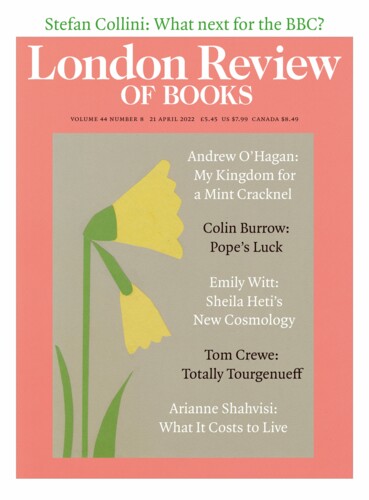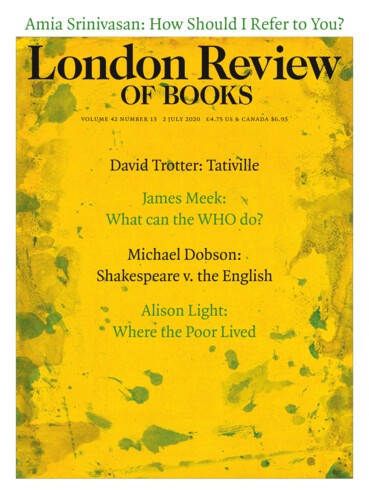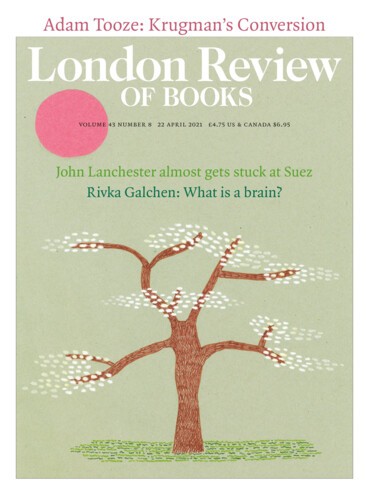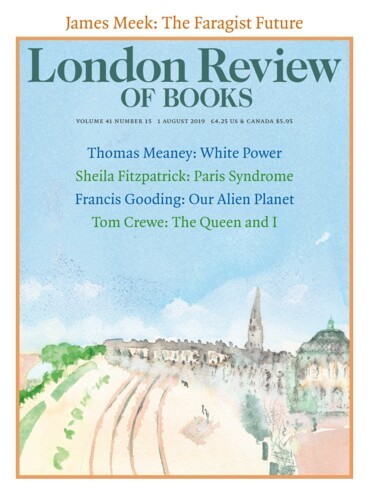A Cosmos Indoors: My Kingdom for a Mint Cracknel
Andrew O’Hagan, 21 April 2022
With some things the sense of lost desire can be strong. The future is always behind us, or at least it seemed that way in the days of the space shuttle and the BBC Micro: they could memorably explode or freeze in the middle of the day, reminding us of the relation between obsolescence and novelty.






